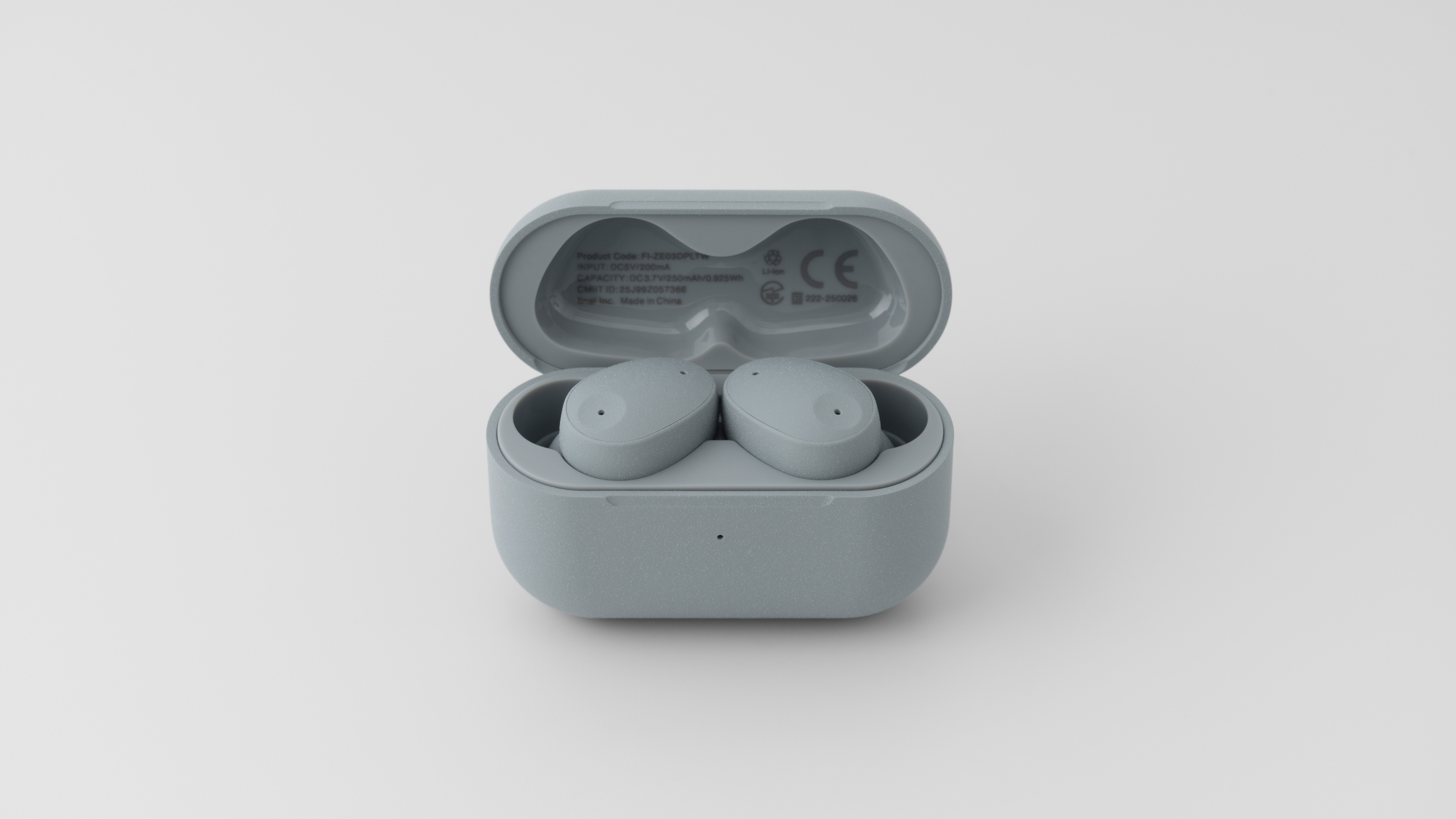What Hi-Fi? Verdict
While the UE50AU8000 makes a good first impression, over time its backlight issues make it harder and harder to live with
Pros
- +
Bright and colourful
- +
Exceptionally slim
- +
Excellent user interface
Cons
- -
Significant backlight shortcomings
- -
Very limited viewing angles
- -
Strangely soft native 4K playback
Why you can trust What Hi-Fi?
The 8000-series sections of Samsung’s annual range refreshes have consistently impressed us in recent years, hitting a price-meets-performance sweet spot we’ve found hard to resist. Hopes are understandably high, then, for 2021’s UE50AU8000. Especially as it delivers its 50-inch 4K screen, extensive HDR support and excellent smart system for a mere £479 / $530 / AU$999.
It has to be said that this segment of the 4K TV market has started to get seriously crowded, and like all of Samsung’s ‘AU’ models, the 50AU8000 doesn’t benefit from the brand’s QLED colour technology. Even so, history is definitely on the UE50AU8000’s side.
Price
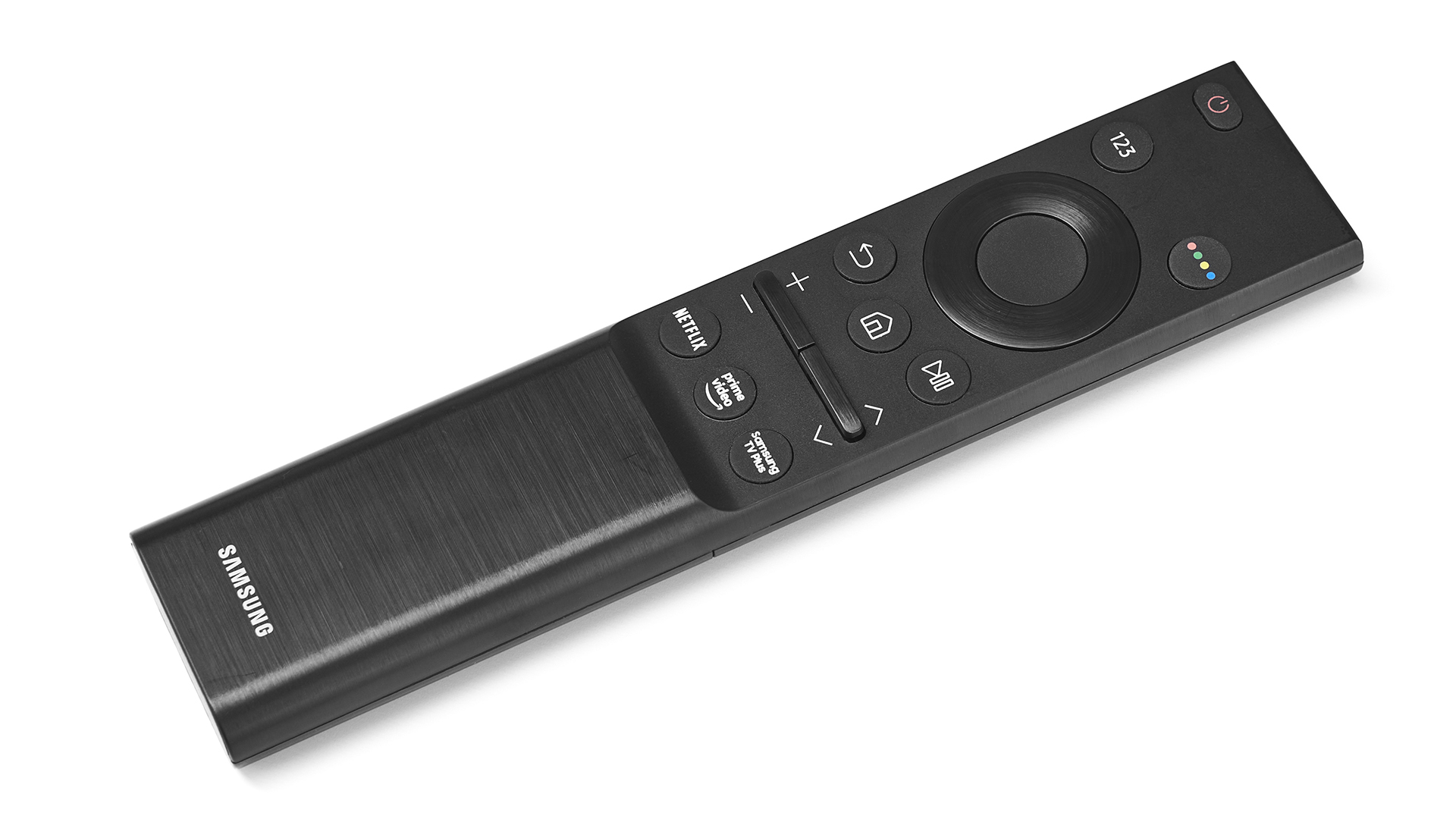
The Samsung UE50AU8000 is currently priced at £649 / $530 / AU$999. It sits between the UE50AU7100 and UE50AU9000 in Samsung's 2021 TV range.
The 50AU8000’s biggest competition in the UK is arguably from the up and coming Chinese brands Hisense and TCL. Hisense, in particular, has the excellent 50-inch Roku R50A7200GTUK, while TCL recently impressed us with another Roku-toting bargain, the 55-inch 55RP620K.
Design
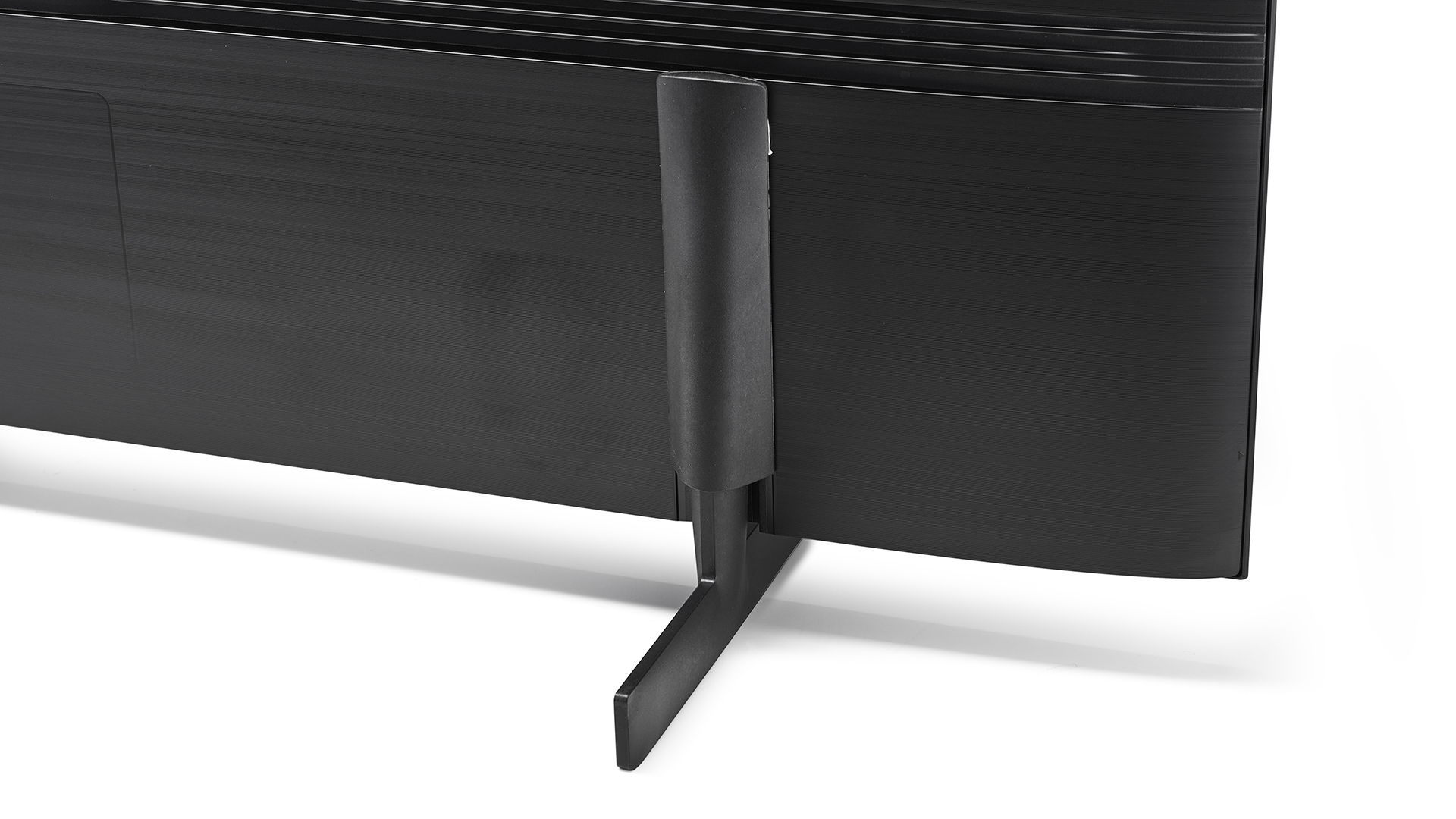
The UE50AU8000 delivers an instant design upgrade on its step-down 7100-series sibling by being much, much trimmer round the back. In fact, it’s the slimmest TV we’ve seen in its class - a fact it underlines by adorning that barely-there rear with a tasteful brushed finish.
Of course, most people we know will spend their time looking at their TV’s front, not its back. But if a ‘360-degree’ design really matters to you, then the UE50AU8000 has got your back. And front.
Even the set’s desktop feet are more stylish than the norm, taking on an ‘ice-skate blade’ approach that makes them almost invisible when you’re viewing the screen straight on. In a triumph of ingenuity, moreover, these legs slot and click into place, rather than having to be screwed on.
The latest hi-fi, home cinema and tech news, reviews, buying advice and deals, direct to your inbox.
The TV’s build quality is pretty respectable for such an affordable TV, too. It’s fair to say that by the time you’ve added to the mix an ultra-trim rear, a super-slim frame around the screen and a cool, minimalist finish, the UE50AU8000 ends up looking like it’s worth comfortably more than it costs.
It builds on this premium feel further by shipping with two remotes: a standard button-heavy one, and a sleek ‘smart’ one that lets you perform all the day to day actions you’ll typically need via a much reduced button count.
Features
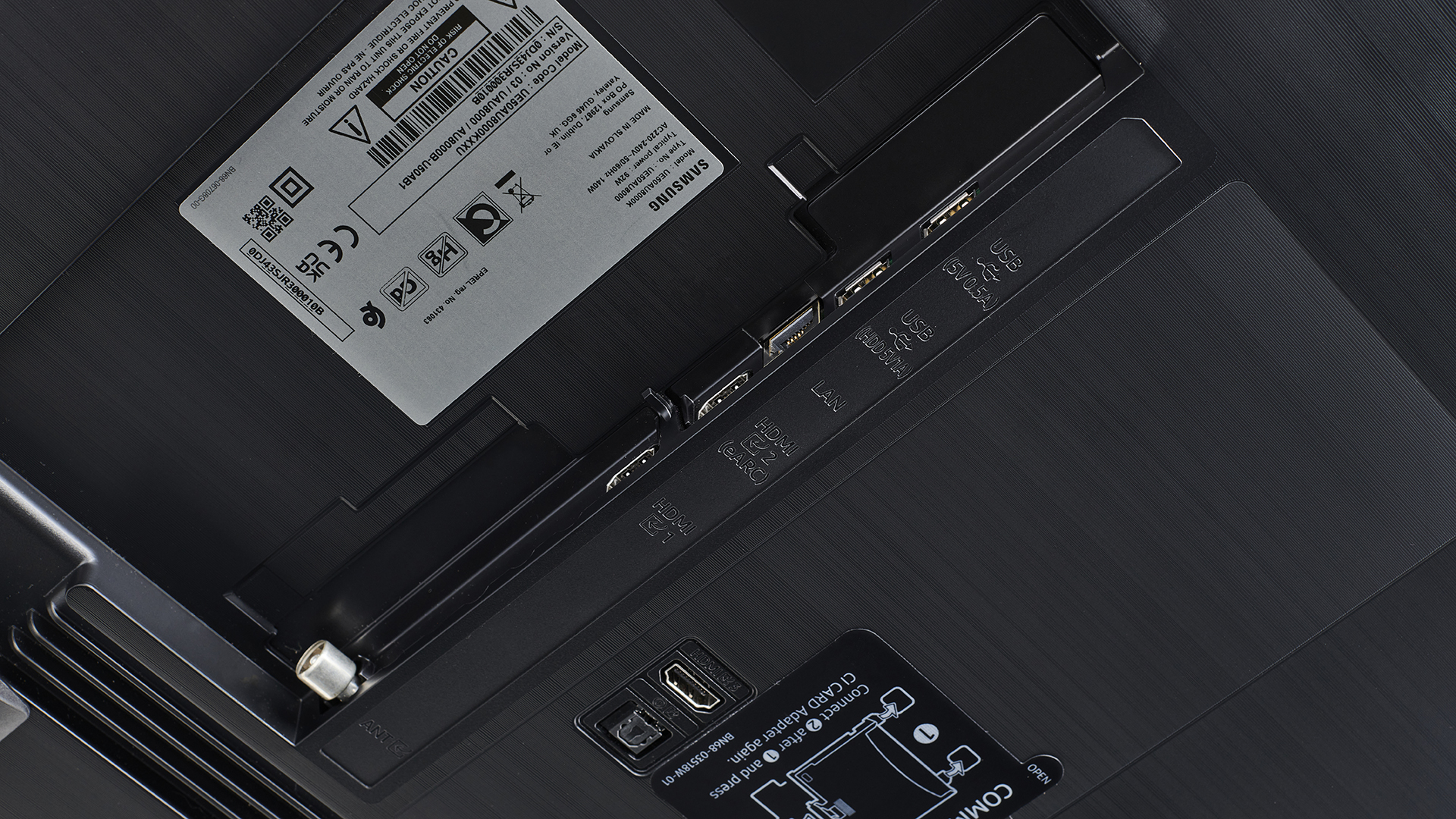
The UE50AU8000 is a native 4K TV that supports the HDR10, HLG and HDR10+ formats of high dynamic range video. There’s no support for the Dolby Vision HDR format because, well, that’s just the way Samsung TVs roll.
As you might guess from its slim design, the UE50AU8000 is lit by an edge-mounted LED array. All of which is the same with Samsung’s cheaper AU7100. Where things differ are in the UE50AU8000’s use of Crystal Colour technology, offering a wider gamut than the AU7100’s PurColour system, and its ability to shift around 70 nits or so more brightness. Both of these step-up features have the potential to be a pretty big deal when it comes to the Holy Grail of getting a decent HDR performance out of a very affordable LCD TV.
There’s a Crystal Processor 4K brain in place to drive the UE50AU8000’s promising panel, while three HDMIs, two USBs and the usual Bluetooth and wi-fi wireless systems are provided for connecting all your sources.
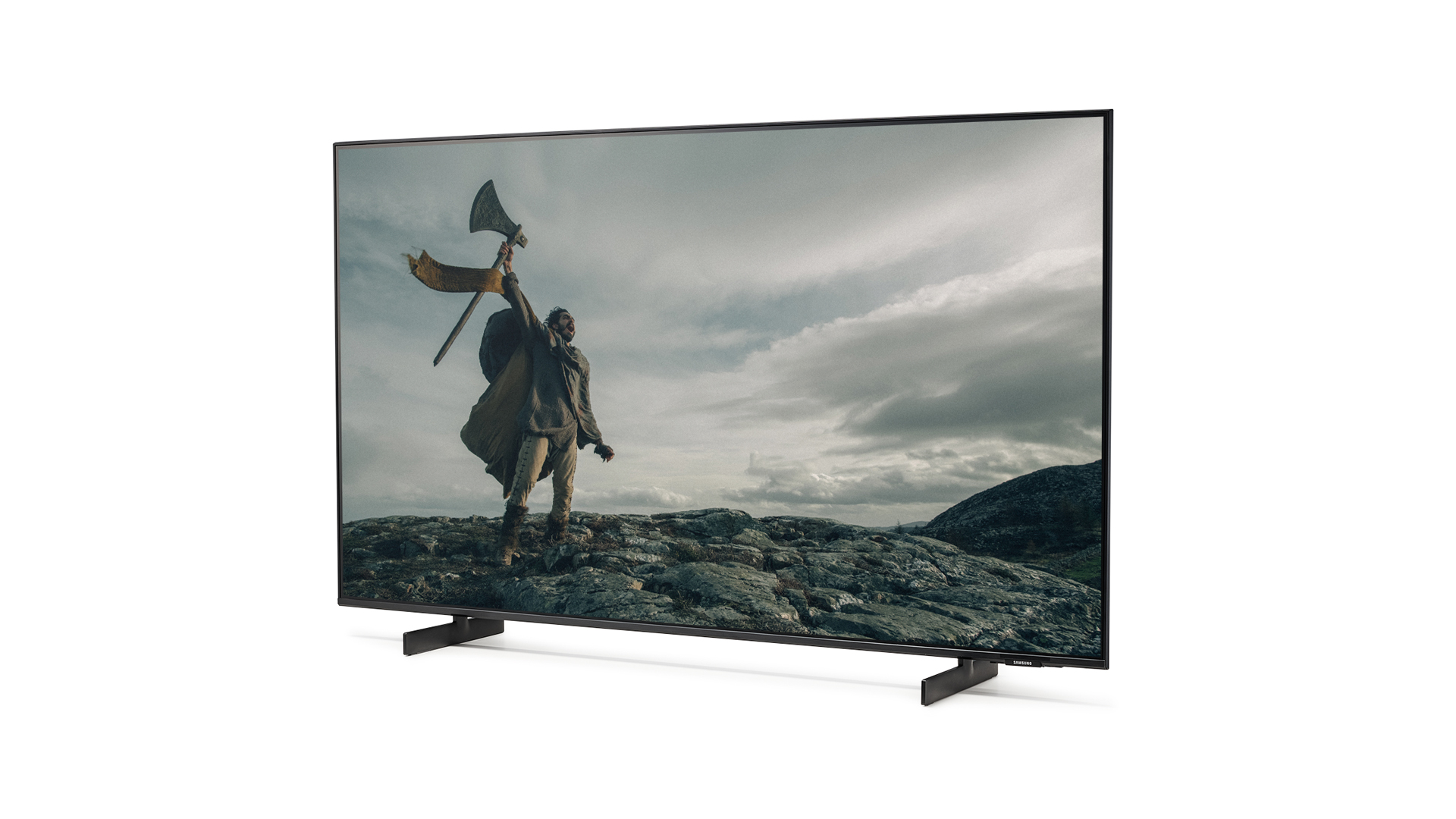
Screen type LCD w/ edge LED backlight
Resolution 4K
Operating system Eden (Tizen)
HDR formats HDR10, HDR10+, HLG
HDMI x3
4K@120Hz No
VRR No
ALLM Yes
ARC/eARC eARC
Optical out Yes
Dimensions w/o stand (hwd) 64 x 112 x 2.6cm
One of the HDMIs supports eARC for pass-through of lossless Dolby Atmos soundtracks, but unfortunately none of the HDMIs support the 4K at 120Hz and/or Variable Refresh Rate feeds so beloved of Xbox Series X and PS5 owners. You do at least get automatic Game mode switching when the TV’s connected to a compatible source, though, as well as support for the ‘HGiG’ gaming HDR standard. We also measured a fantastically low input lag figure in Game mode of just 9.1ms.
Smart features are provided by Samsung’s redoubtable Tizen-based Eden system, which is as slick, effective and efficient here as it is on any of Samsung’s premium TVs. All the services most people will want are present and correct, including all of the key UK terrestrial broadcaster catch-up apps. It’s worth noting, though, that these apps aren’t packaged within a Freeview Play umbrella app as they are on many rival TVs. Again, as with Dolby, Samsung doesn’t want to play by Freeview Play’s rules.
Picture
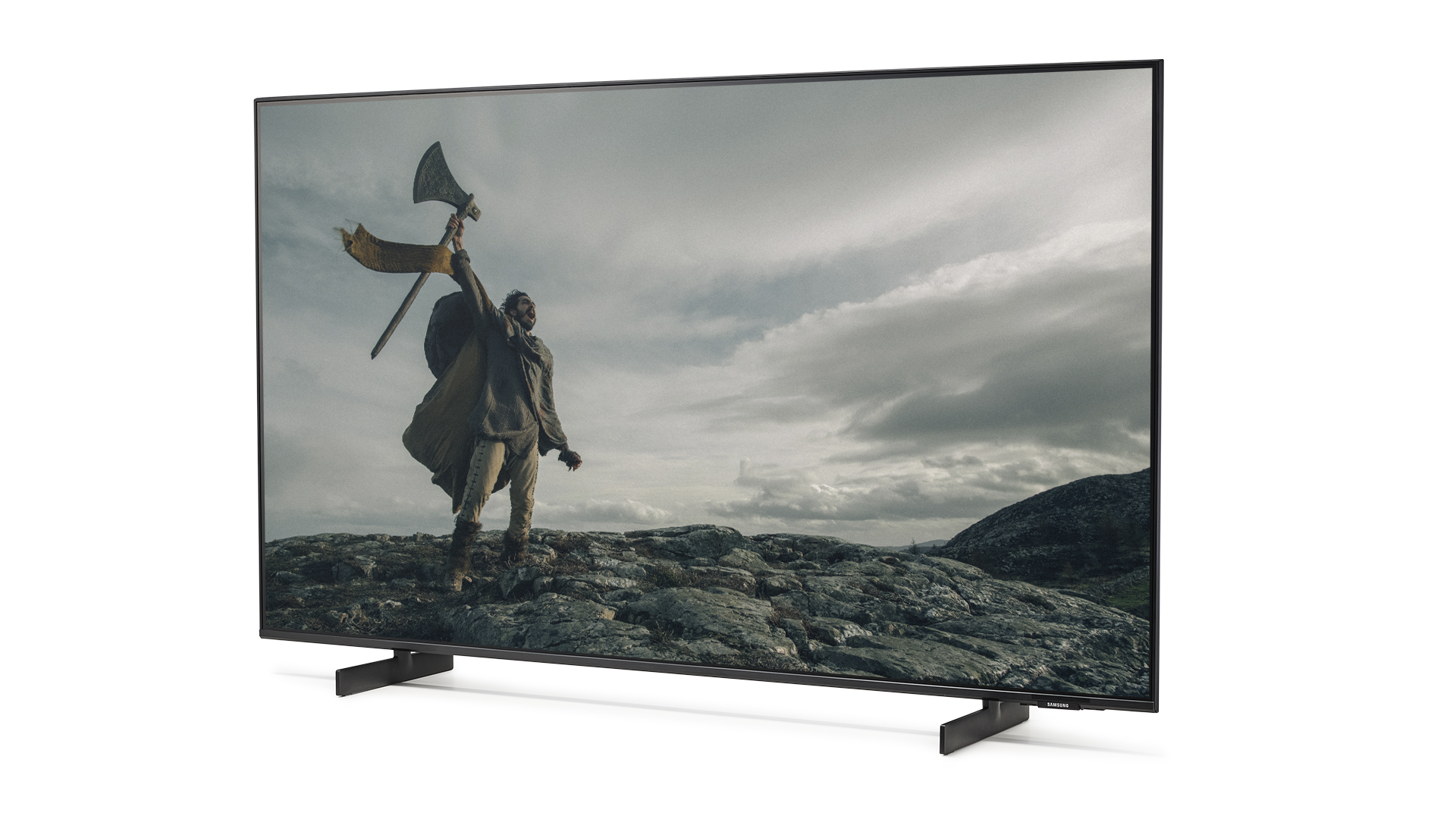
For a brief moment, it looks like the 50AU8000’s pictures are going to be a chip off the impressive old Samsung mid-range block. Bright scenes look impressively punchy and vibrant for such an affordable TV for instance, especially when it comes to vivid reds and blues, and there’s precious little sign of the ‘bleaching out’ effect in peak bright HDR areas that we often see with affordable LCD screens. In fact, the screen resolves subtle colour shifts and changes unusually deftly for its price point.
Motion looks reasonably natural too, once you’ve swapped the over-enthusiastic, noisy-looking Auto Picture Clarity setting for a calmer Custom mode where Judder Reduction is set to around three or four. There does seem to be a little more residual resolution loss in areas of fine detail during camera pans than we’d typically expect from a Samsung TV, but overall it’s still a good effort.
The 50AU8000 also excels with its upscaling of sub-4K content. It adds a seriously impressive amount of detail and sharpness to HD sources, producing much more ‘4K-like’ results than most affordable 4K TVs muster. What’s more, it delivers its excellent upscaling results without exaggerating noise or causing distracting side effects.
The 50AU8000’s problems begin when onscreen events turn dark. The screen’s black level response is really quite disappointing, leaving a very noticeable blue-grey shroud hanging over any dark or even mid-dark scene a film or TV show might contain. This immediately makes such scenes look unnatural, as well as compromising the tones of pretty much all dark colours and shades.
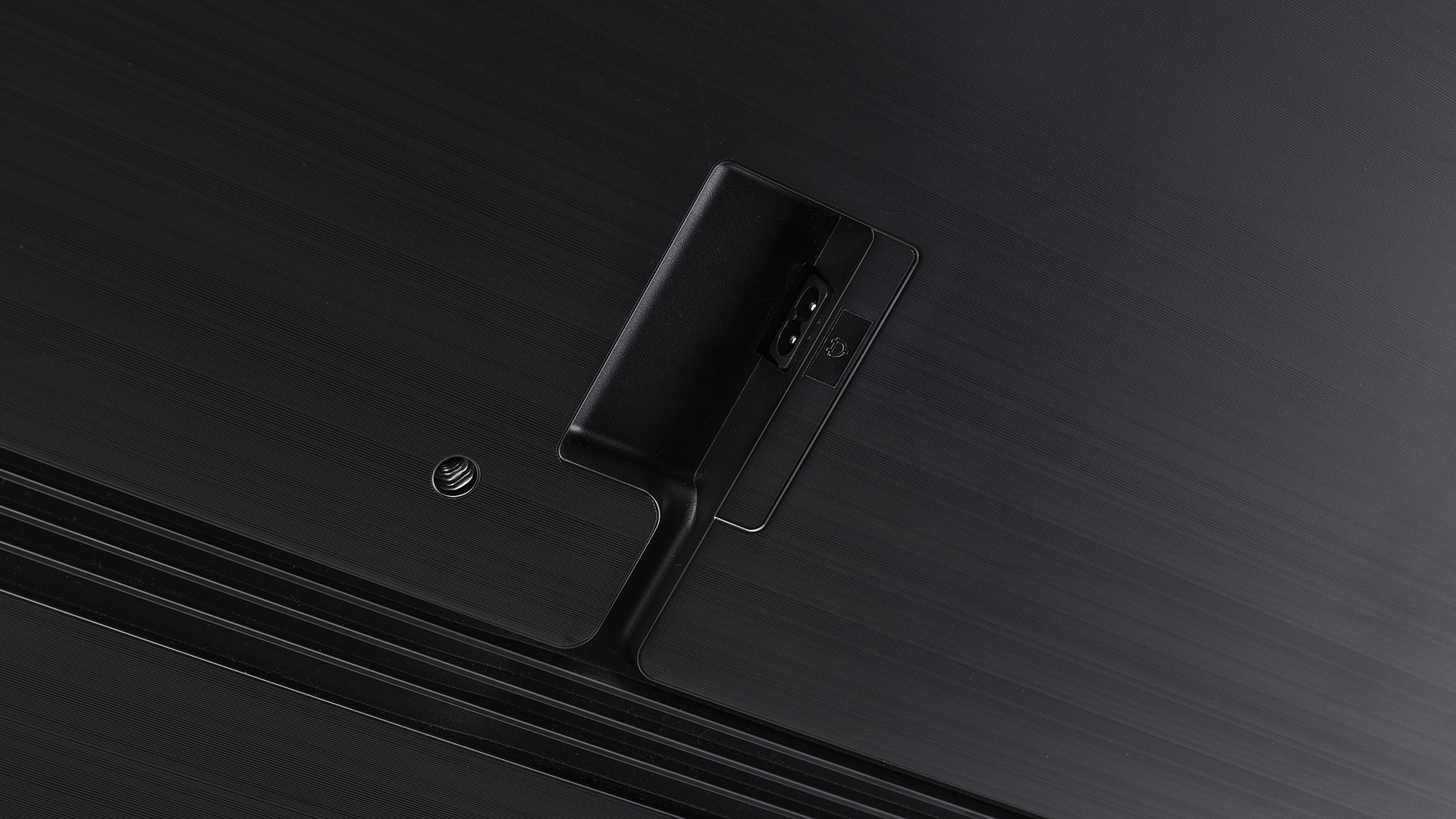
There are areas of extra clouding within the general greyness too, and none of the available contrast or backlight settings make enough of a difference to save the day. Dark scenes do retain a bit more shadow detail than you often see with affordable LCD TVs, but the cost in terms of black level response is much too high.
More unexpected disappointment comes with the 50AU8000’s sharpness – or, rather, its lack of sharpness – with native 4K sources. In a complete reversal of the situation with upscaled HD images, the 50AU8000’s native 4K playback actually looks quite soft, even by the standards of the budget TV market.
While some colours look beautifully vivid on the 50AU8000, others, especially ‘nature’ greens, can look a touch subdued, resulting in bright HDR footage sometimes looking uneven and inconsistent.
Finally in the negative column, the 50AU8000 only supports extremely limited viewing angles, with colour saturation and especially black level response both plunging as soon as you get just a few degrees off axis.
Sound
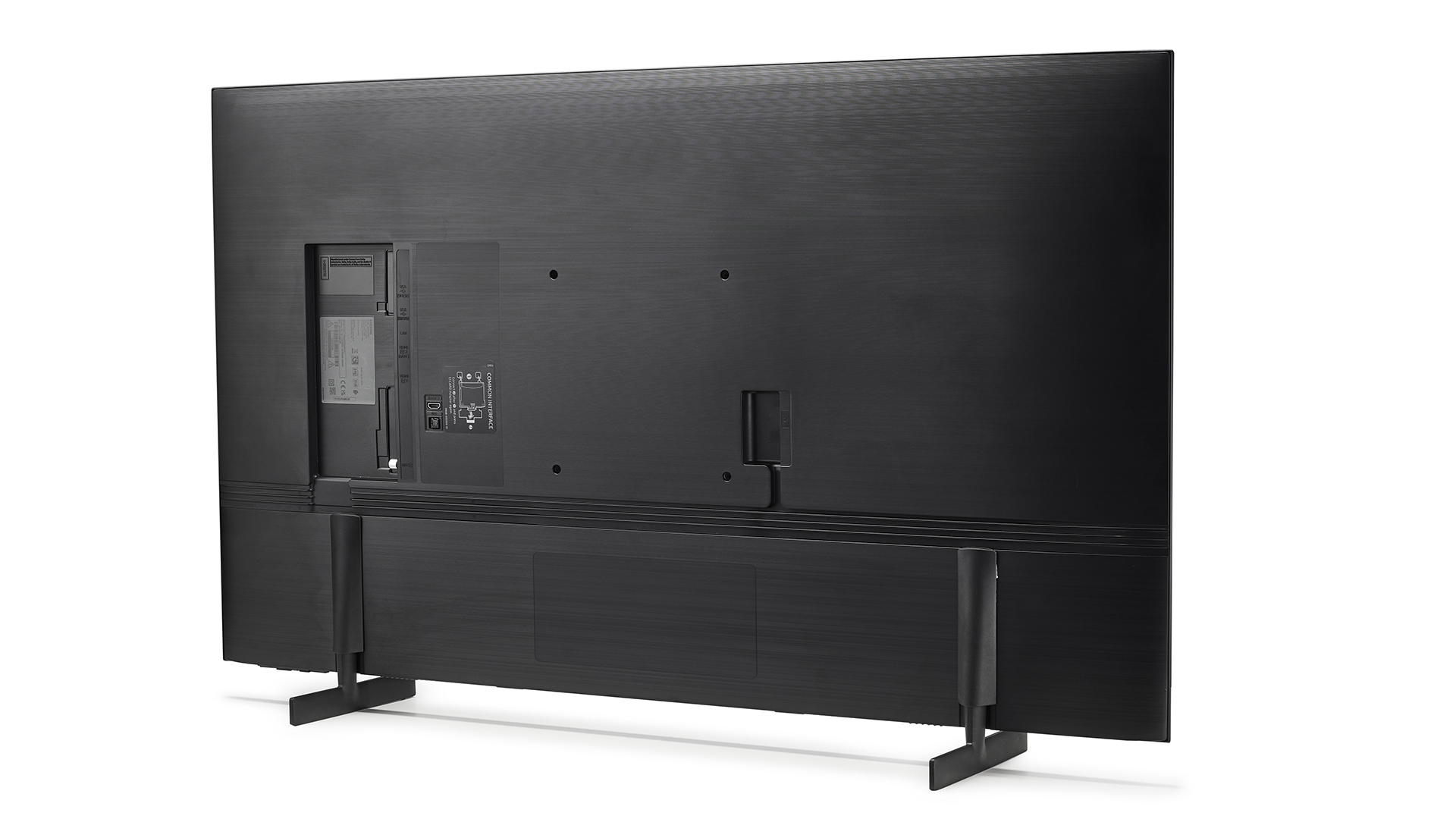
Here, too, the 50AU8000 flatters to deceive. At first listen it seems to produce a pleasingly wide soundstage, filled busily by lots of subtle detail. Certainly things feel more ‘hi-fi’ than you might typically expect from an affordable 50-inch TV.
As soon as the going gets a bit tough, though, it quickly becomes apparent that the 50AU8000’s speaker system lacks both power and dynamic range – at least when it comes to bass. As an action movie scene starts to build up a head of audio steam, the 50AU8000 suddenly gives up the ghost, flattening off into a thin, bass-light, rather harsh presentation that if anything loses rather than gains impact as the action heads towards its crescendo.
Verdict
If everything we watched on TV happened to be bright, the 50AU8000 would work just fine. Its pictures skew brighter than usual for such an affordable TV, and this joins forces with some serious colour punch to really sell the HDR dream when you’re watching really light images.
Unfortunately, though, the 50AU8000 just doesn’t have the backlight control necessary to adapt itself successfully to darker moments, leaving them looking misty and unconvincing.
SCORES
- Picture 3
- Sound 3
- Features 4
MORE:
Here's our round-up of the best budget 4K TVs
Read our Hisense Roku 50A7200GTUK review
Try another Samsung? Here's our review of the Samsung UE43AU7100
Alternatively, check out the TCL 55RP620K
What Hi-Fi?, founded in 1976, is the world's leading independent guide to buying and owning hi-fi and home entertainment products. Our comprehensive tests help you buy the very best for your money, with our advice sections giving you step-by-step information on how to get even more from your music and movies. Everything is tested by our dedicated team of in-house reviewers in our custom-built test rooms in London, Reading and Bath. Our coveted five-star rating and Awards are recognised all over the world as the ultimate seal of approval, so you can buy with absolute confidence.

